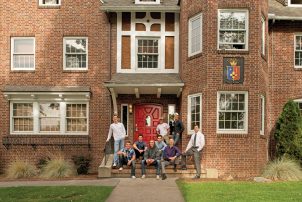 SigEp’s Washington State Chapter is currently enjoying some of its greatest successes ever. The group is fresh off winning a Donald C. McCleary Award for Excellence in Member Development and its second Buchanan Cup since being accredited by the national Fraternity as a SigEp Residential Learning Community in 2011. The chapter was 119 brothers strong in spring 2016 and concluded the semester with a cumulative GPA of 3.26. This performance topped their fall 2015 GPA by nearly a tenth of a percent and earned them the highest academic ranking of all fraternities on campus.
SigEp’s Washington State Chapter is currently enjoying some of its greatest successes ever. The group is fresh off winning a Donald C. McCleary Award for Excellence in Member Development and its second Buchanan Cup since being accredited by the national Fraternity as a SigEp Residential Learning Community in 2011. The chapter was 119 brothers strong in spring 2016 and concluded the semester with a cumulative GPA of 3.26. This performance topped their fall 2015 GPA by nearly a tenth of a percent and earned them the highest academic ranking of all fraternities on campus.
Many of the secrets to Washington Alpha’s success can be found behind the red door of a stately brick home at 610 NE Colorado Street. Visitors might find it hard to believe that nearly 60 college men live in the neat and well-maintained house on Washington State’s Pullman campus. For the brothers who call it home, this Residential Learning Community symbolizes and supports an elite kind of college experience.
Members credit the chapter’s long-standing tradition of maintaining a substance-free facility with helping them form stronger bonds and reducing the pressure many college students feel to drink or take drugs. Brothers take pride in being able to live in this kind of environment, and they perform weekly chores to keep the home clean and free of distracting clutter. In addition, the Alumni and Volunteer Corporation’s vice president of housing, Ken Christianson, Washington State ’74, has made maintain-ing the house an ongoing priority, overseeing everything from replacing worn furniture to installing energy-efficient lighting and making sure the house is up to code.
“The house is in great shape,” observed Justin Rath, who concluded a two-year stint as resident scholar at the end of spring 2016. After Internet capacity was upgraded last year, Rath noticed many brothers were studying at the house more instead of walking up to the library, where there can be fierce competition to find a quiet spot.
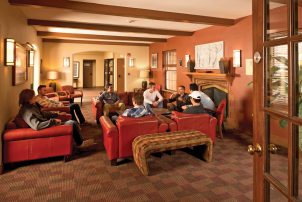 Comfortable but elegant, the common areas of the house are well suited to both casual gatherings and more structured opportunities for personal and intellectual growth. It’s common to find brothers hanging out talking about sports or politics or attending programming such as the chapter’s annual presentation on professional attire, advice from financial advisors, or a recent work-shop on abolishing racism by Faculty Fellow Charles Weller.
Comfortable but elegant, the common areas of the house are well suited to both casual gatherings and more structured opportunities for personal and intellectual growth. It’s common to find brothers hanging out talking about sports or politics or attending programming such as the chapter’s annual presentation on professional attire, advice from financial advisors, or a recent work-shop on abolishing racism by Faculty Fellow Charles Weller.
Typically, either Weller, a clinical associate professor in history, or the chapter’s other faculty fellow, Mark Swanson, an associate professor in ecology and silviculture, sit in on chapter meetings to offer insights or share lessons from their own life experiences. Some of Weller’s teachings have also been incorporated into the chapter’s Balanced Man Program. Like Weller, Swanson also presents seminars customized for the chapter. One of his recent presentations was on preparing for a career in a world where technology has raised expectations for skills and knowledge.
Swanson noted the faculty fellow program has value beyond being a great opportunity for members to engage with and learn from professors outside the classroom.
In addition, members participate in events like ManTalk, a men’s personal growth group developed by former Resident Scholar Shane McKee, Washington State Renaissance. ManTalk events have covered topics such as depression and male identity and have given members the chance to discuss issues that men frequently don’t talk about. As part of the series, university and community leaders such as Washington State’s head basketball coach, Ernie Kent, and the mayor of Pullman have been invited to talk about their ideas of what it means to be a man.
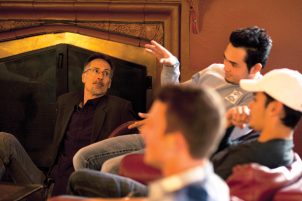 The wide range of topics and ideas is intentional, said Nolan Lilje, ’18, vice president of programming, because it’s important to offer opportunities that are “relevant and interesting to everyone and will allow them to take something away from attending an event.”
The wide range of topics and ideas is intentional, said Nolan Lilje, ’18, vice president of programming, because it’s important to offer opportunities that are “relevant and interesting to everyone and will allow them to take something away from attending an event.”
Like every strong SigEp chapter, Washington State’s Residential Learning Community would not exist without a core group of volunteers to inspire a shared vision and provide continuity of leadership. For the better part of the last decade, Craig Dewey, ’72, supported a dedicated band of volunteers as Alumni and Volunteer Corporation president. Today, the reigns have been passed along to Joshua Palmer, ’08, and Dewey remains involved as one of many mentors advising chapter leaders on opera-tions, academics and life.
Alumni have also supported the chapter generously through gifts to scholarships and facility improvements. Recently, John Underwood, ’58, was so impressed by the chapter’s academic strength and campus leadership that he contributed $75,000 to its scholarship fund.
The depth of talent in the chapter hasn’t gone unnoticed by university officials either. A stop at the Washington Alpha Residential Learning Community is part of the campus tour for potential students. And for the last four years, the home has served as a location for on-campus interviews during university career fairs.
Chapter President Joe Kurle, ’18, attributed the chapter’s successful partnerships to shared goals between the chapter and the university. “The balance between academic and personal development and the cooperation between our undergraduate members and university faculty creates an environment which makes it easier to develop in a more complete way,” said Kurle.
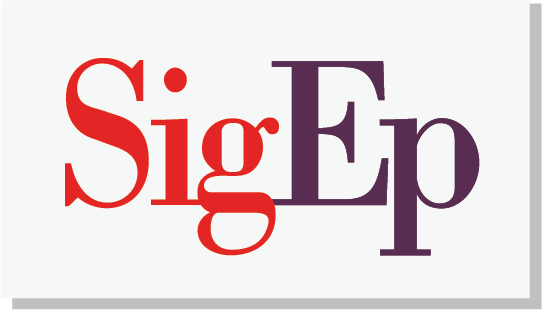
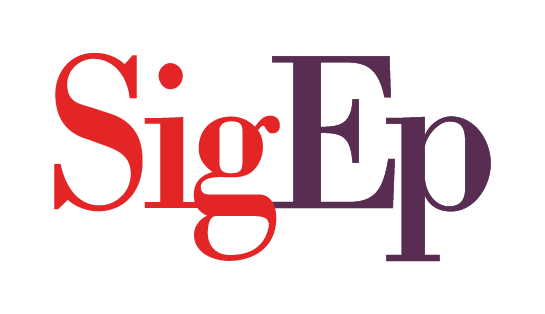




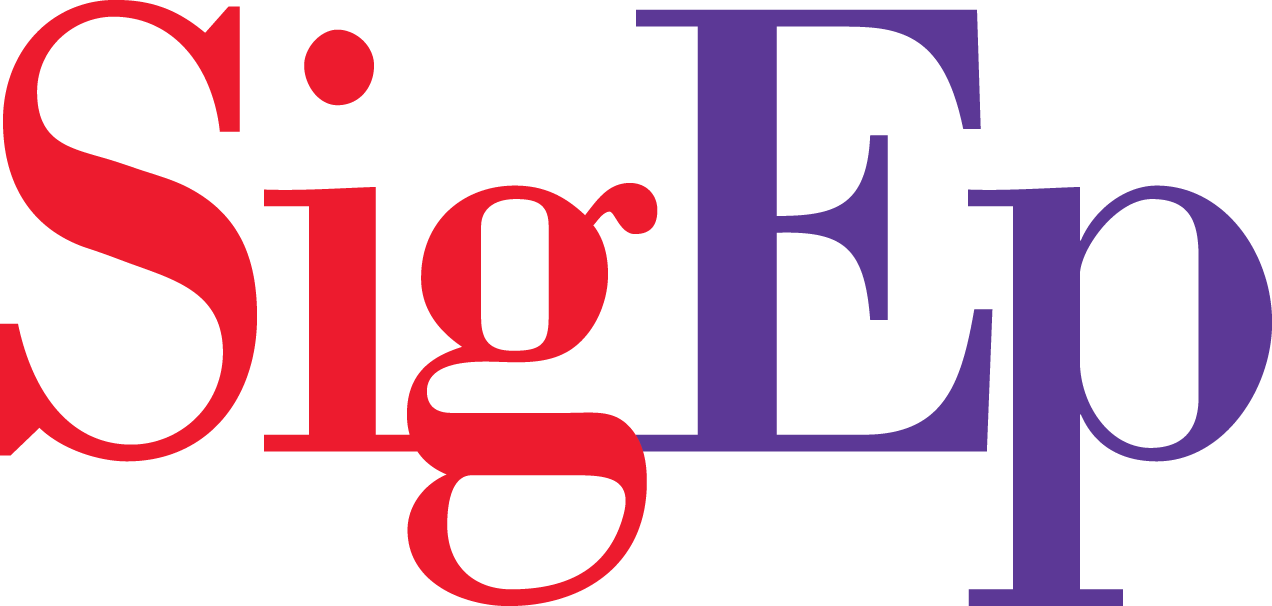


Leave a Reply